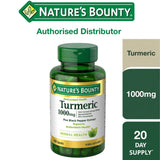Nature’s Bounty Vitamin D3 Rapid Release Softgels, 1000 IU, 250 Count

Nature’s Bounty Vitamin D3 1000 IU Softgels – 250 Count
Support your immune system and overall wellness with Nature’s Bounty Vitamin D3 1000 IU softgels. Designed to deliver a high-quality, active form of Vitamin D, these softgels help promote calcium absorption and support strong, healthy bones in adults.* They also provide a convenient source of the “sunshine vitamin” for those who spend much of their time indoors, helping to maintain optimal Vitamin D levels year-round.*
Vitamin D3 plays a crucial role in immune health by supporting the function of T-lymphocytes and B-lymphocytes cells—important defenders in your body’s adaptive immune system.* Just one rapid-release softgel daily, preferably taken with a meal, offers a simple way to meet your daily needs.
Formulated to meet various dietary preferences, Nature’s Wellness Vitamin D3 softgels are non-GMO, gluten-free, sugar-free, and contain no artificial sweeteners or colors.
With five decades of expertise in health and nutrition, Nature’s Wellness is committed to delivering supplements backed by science and crafted with care to help you feel your best every day.
· Delivers 1000 IU of Vitamin D3 in each softgel
· Supports immune system function and bone health*
· Aids calcium absorption for strong bones*
· Provides a dietary source of Vitamin D, especially for those with limited sun exposure
· Non-GMO, gluten-free, sugar-free, with no artificial colors or sweeteners
· Includes 250 rapid-release softgels per bottle
Vitamin D is a fat-soluble nutrient that helps the body absorb calcium from food, which is essential for maintaining strong and healthy bones.
The body mainly produces vitamin D when the skin is exposed to sunlight, specifically ultraviolet B (UVB) rays. To support adequate vitamin D levels, try getting sunlight on your arms and legs for about 5 to 30 minutes, two times a week. The ideal window for sun exposure is typically between 10 a.m. and 3 p.m. People with lighter skin tones generally require less sun exposure compared to those with darker skin.
This is because melanin, the pigment that gives skin its color, naturally blocks some UVB rays—meaning individuals with darker complexions often need more sun exposure to generate the same amount of vitamin D. In older adults, the skin’s ability to produce vitamin D from sunlight declines, making it harder to meet the body’s needs through sun exposure alone. A lack of vitamin D may increase the risk of health issues like osteoporosis.
Food sources of Vitamin D & recommended daily allowances (RDA)
| Age group | Daily Recommended Dietary Allowance (RDA) Of Vitamin D (In Micrograms) |
|---|---|
| 18 years and above | 2.5mcg |
| Pregnant and lactating women | 10mcg |
| Children, 7 to 18 years | 2.5mcg |
| Girls, 5 to < 7 years | 10.5mcg |
| Boys, 5 to < 7 years | 10mcg |
| Children, 3 months to < 7 years | 10mcg |
Source: Health Promotion Board (HPB) Singapore
Even with Singapore’s abundant sunshine, many expectant mothers do not get enough vitamin D, which may raise the likelihood of complications during pregnancy.
Although pregnant women often pay close attention to their diets, vitamin D is a nutrient that is frequently overlooked. Both locally and globally, vitamin D deficiency is widespread among pregnant individuals, and this shortfall is linked to a higher risk of issues during childbirth.
Research conducted by KK Women’s and Children’s Hospital (KKH) in 2021 revealed that during the COVID-19 period, as many as 90% of pregnant women had vitamin D levels below the recommended range. “Adequate vitamin D levels have been shown to lower the chances of pregnancy complications such as premature delivery and babies born with low birth weight,” noted Professor Jerry Chan, Senior Consultant at KKH’s Department of Reproductive Medicine and Director of the SingHealth Duke-NUS Maternal and Child Health Research Institute (MCHRI).
Source: https://www.singhealth.com.sg/news/singapore-health/get-more-of-this-vitamin



We Also Recommend









